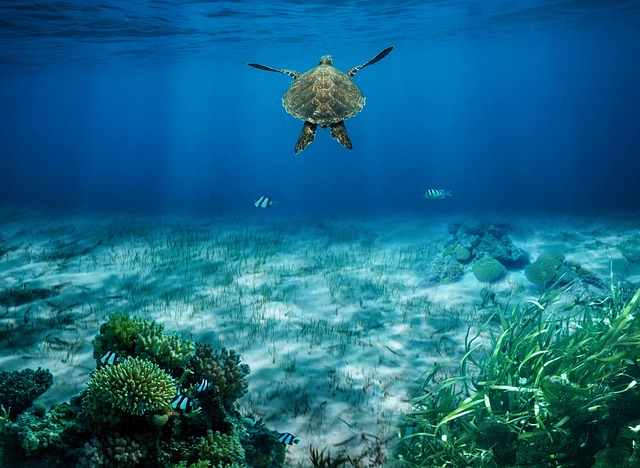The world’s oceans, covering over 70% of the Earth’s surface, are vital to our planet’s health and well-being. They are home to a myriad of organisms forming complex marine ecosystems that are not only essential for biodiversity but also for the livelihoods of millions of people around the globe. Yet, these stunning underwater realms are facing unprecedented threats, primarily due to the escalating impacts of climate change.
As the global temperature rises, we witness the devastating effects on marine ecosystems. Ocean warming leads to coral bleaching, a phenomenon that occurs when corals become stressed due to changes in temperature, light, or nutrients. When they expel the colorful algae that live in their tissues, they turn white and lose their primary source of food. This not only threatens the coral reefs, often dubbed the “rainforests of the sea,” but also the myriad of species that depend on them for habitat and sustenance.
Acidification is another shadow cast by climate change. The oceans absorb approximately 30% of carbon dioxide emissions, leading to a decrease in pH levels. This change in acidity impacts the ability of marine life, like shellfish and some species of plankton, to form their shells and skeletons, subsequently disrupting marine food webs. The ripple effects can lead to the decline of fisheries and marine biodiversity, posing a threat to food security and economies reliant on ocean resources.
Moreover, altering sea levels and changing currents can affect migration patterns of marine species, leading to a disconnect between predator and prey dynamics. The delicate balance of marine ecosystems is disrupted when fish populations relocate to cooler waters, causing stress to local fishing communities and altering entire ecosystems.
It’s not just the larger marine creatures that are affected. The impacts of climate change can often be observed in smaller, less charismatic organisms as well. For instance, seagrasses — vital habitats for many juvenile fish and marine species — are suffering from climate-induced stresses that reduce their ability to thrive. When seagrass beds decline, we may see a corresponding decrease in species richness and the overall health of marine ecosystems.
The plight of marine ecosystems reaches beyond the ocean depths. As these natural barriers begin to crumble, coastal communities face increased flooding, loss of protective barriers, and a decline in the abundant resources that once supported their way of life. It’s a sobering reality that connects us all: climate change isn’t just a distant, abstract issue; it’s an immediate concern with real consequences for our oceans and our lives.
In the face of such challenges, it’s essential that we take a stand and advocate for practices that protect marine ecosystems. From reducing carbon footprints to supporting sustainable fishing and protecting marine protected areas, we all have a role to play in combating climate change. Marine ecosystems are resilient, but they need our help to adapt to the rapid changes brought on by climate change. By fostering a connection with the oceans and promoting awareness about their plight, we can play a part in ensuring that they continue to flourish for generations to come.



